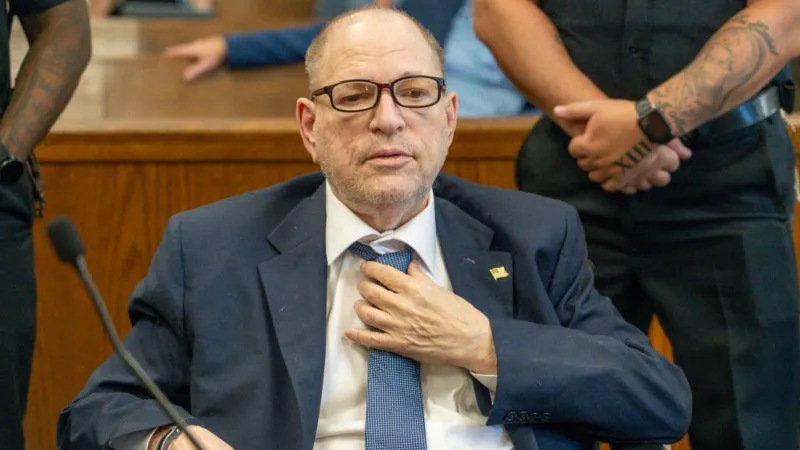Harvey Weinstein, the former film mogul whose career was overshadowed by criminal convictions and health issues, is currently in the hospital in New York for emergency heart surgery. The 72-year-old was moved from Rikers Island jail to Bellevue Hospital late on Sunday, as confirmed by his legal team.
Weinstein’s lawyers have indicated that the producer has been dealing with various health problems, including experiencing chest pains. Although specific details about his condition were not disclosed, the emergency surgery highlights the ongoing challenges he faces with his health.
Weinstein’s legal troubles began with his 2020 conviction for rape and sexual assault in New York. He was sentenced to 23 years in prison for these crimes. However, earlier this year, his convictions were overturned by an appellate court, which found that Weinstein did not receive a fair trial. The court’s ruling was based on the argument that prosecutors had introduced witnesses whose testimonies were not directly related to the charges against him. Weinstein now faces the possibility of a retrial later this year.
In addition to the New York case, Weinstein was also sentenced to 16 years in prison in a separate trial in California for rape. He is currently appealing this sentence as well.
Weinstein’s health has been a significant concern in recent years. He has been hospitalized multiple times, including for Covid-19 and double pneumonia in July. In 2020, he was admitted to the hospital for chest pains and to address a blocked artery. His medical history also includes diabetes and high blood pressure, conditions that have further complicated his health.
The allegations against Weinstein have had a profound impact, with more than 100 individuals coming forward with claims of rape and misconduct stretching back to the late 1970s. These accusations played a crucial role in the rise of the #MeToo movement, which has sought to hold powerful figures accountable for sexual abuse and misconduct.
Despite his legal convictions, Weinstein has consistently maintained his innocence. He has claimed that he is a victim of a “set-up” orchestrated by those seeking to bring him down. His story is also marked by his significant achievements in the film industry. Weinstein co-founded Miramax, a studio that produced acclaimed films like Shakespeare in Love and Pulp Fiction. His work earned over 300 Oscar nominations and 81 awards, underscoring his influential role in Hollywood.
The ongoing legal and health issues surrounding Weinstein reflect the broader complexities of his case and its impact on both the entertainment industry and the broader public discourse on sexual misconduct.
